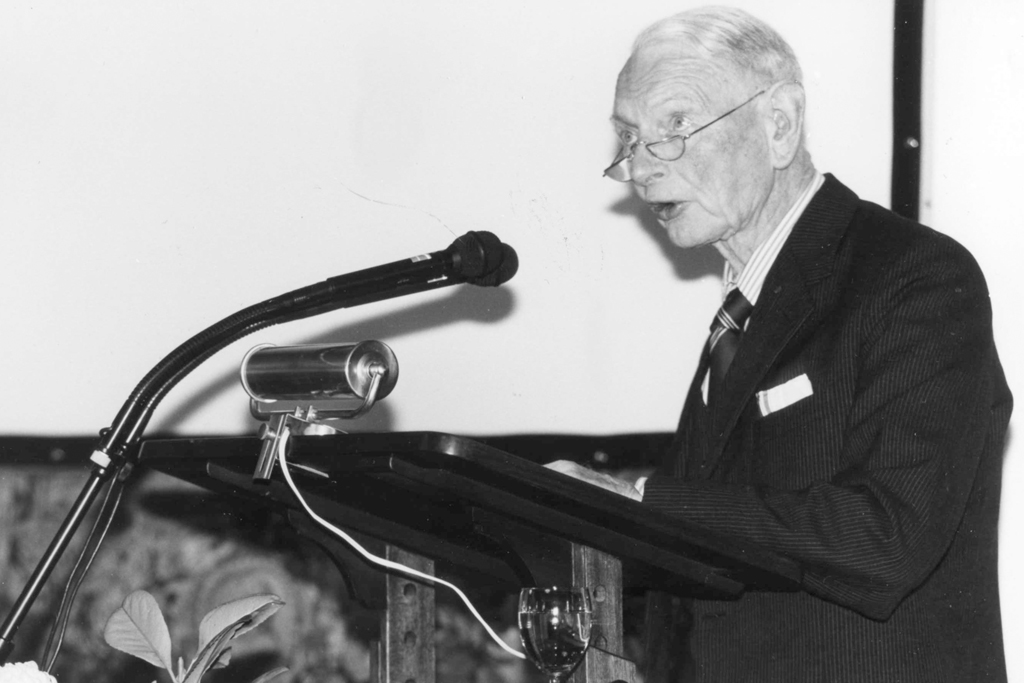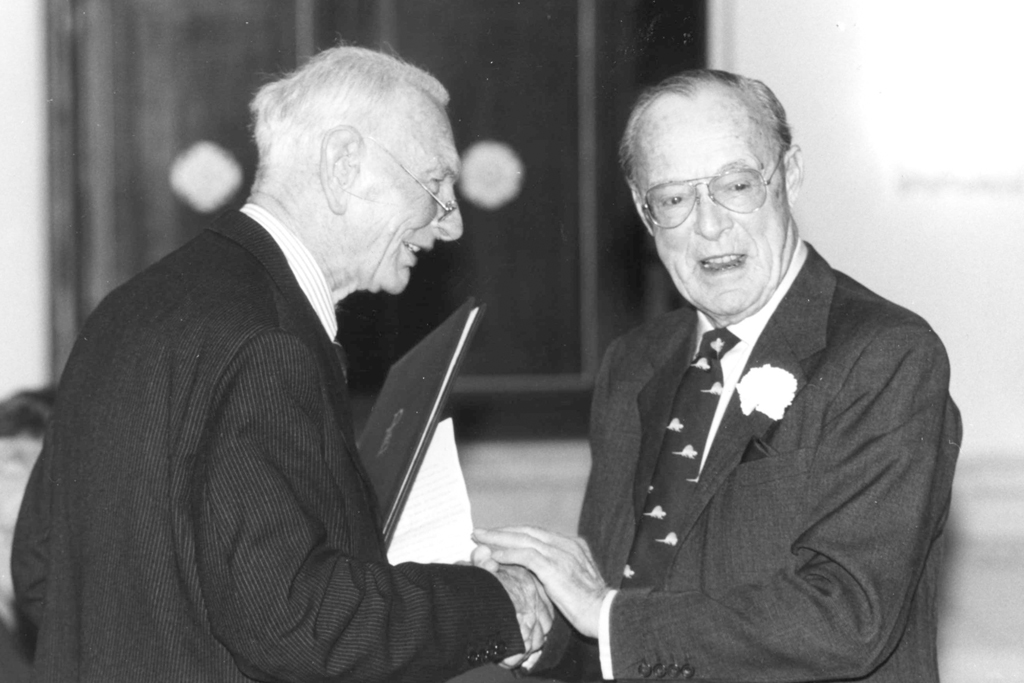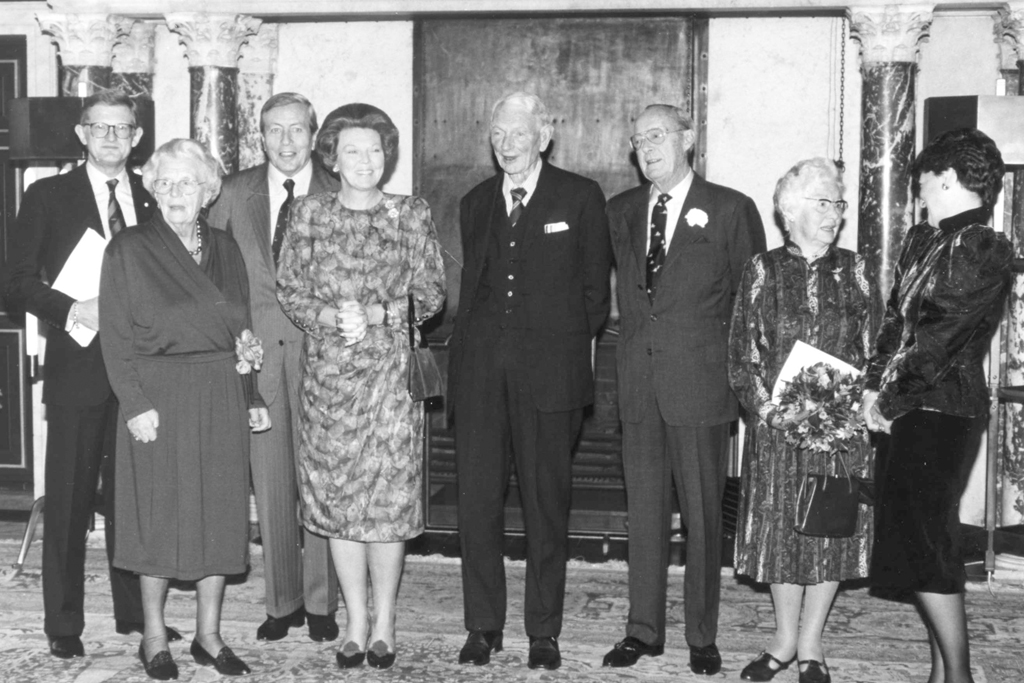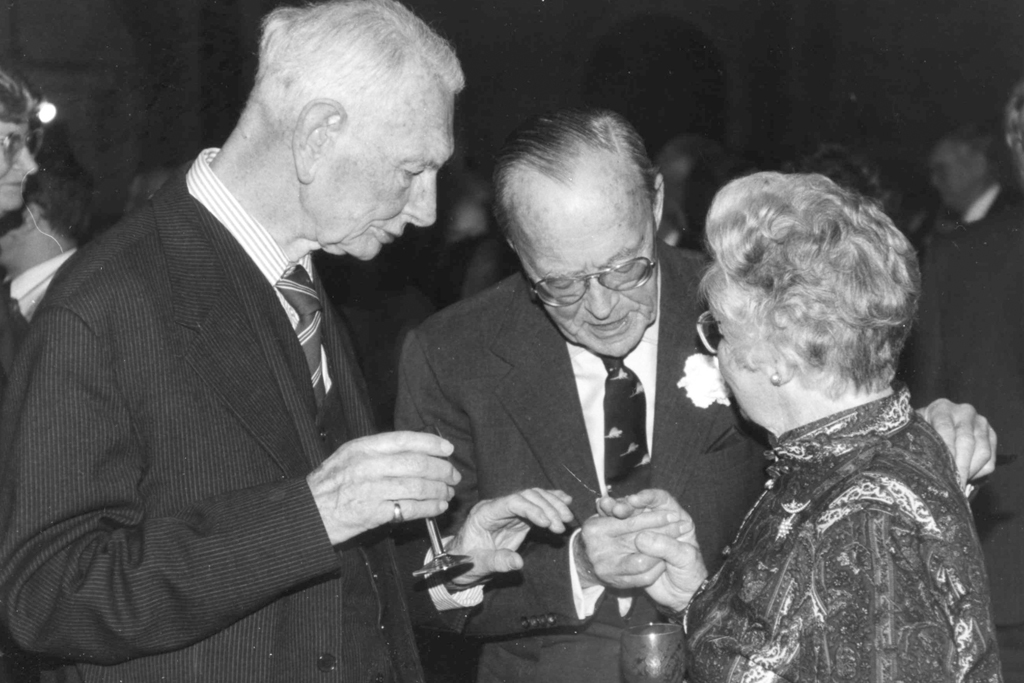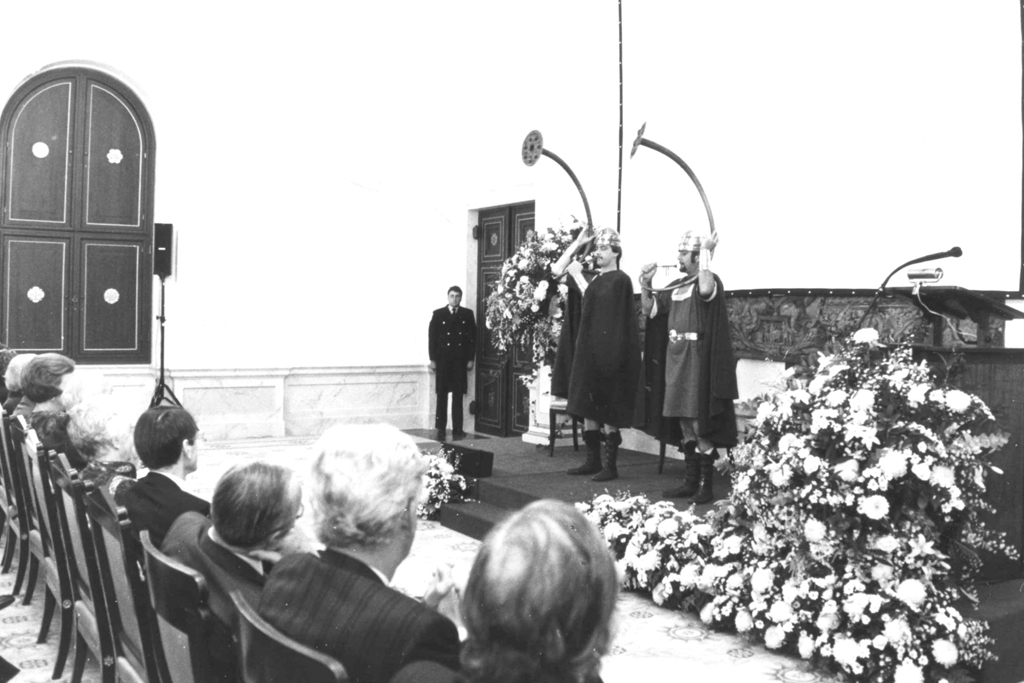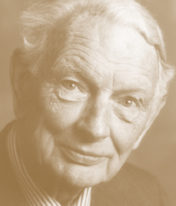Sir Grahame Clark
Laureate Erasmus Prize 1990
Theme: Archaeology
The Erasmus Prize in 1990 was dedicated to ‘prehistoric archaeology’. The prize was awarded to the British professor Grahame Clark. He linked together, both in theory and in practice, the historical, anthropological and biological sciences.
John Grahame Douglas Clark (1907-1995) was associated with Cambridge University throughout his professional career. He produced influential publications which provide surveys of various prehistoric periods and regions. Throughout the years he gradually developed the concept of ‘world prehistory’, which he elaborated in World Prehistory: An Outline (1961).
Sir Grahame Clark formed the basis for the archaeological theory that gained much credence in the world of archaeology in the 1960s. Professor Clark’s excavations, particularly at the Mesolithic site Star Carr, set the standard for the use of various auxiliary sciences. His research in the Fenlands in the east of England was also of major importance.
Grahame Clark can be regarded as a pioneer in the study of the economic aspects of prehistoric communities. His 1952 book – Prehistoric Europe: The Economic Basis – greatly influenced the study of prehistoric archaeology. Through his accessible publications, Clark succeeded in reaching a large audience, and through his inspiring working methods he has established a scholarly institute whose influence is felt throughout the world.
Grahame Clark used the money from the Erasmus Prize to set up a fund with which the Prehistoric Society can award an annual prize. In 1992 the British Academy first awarded the biennial Grahame Clark Medal for outstanding achievement in prehistoric archaeology.
